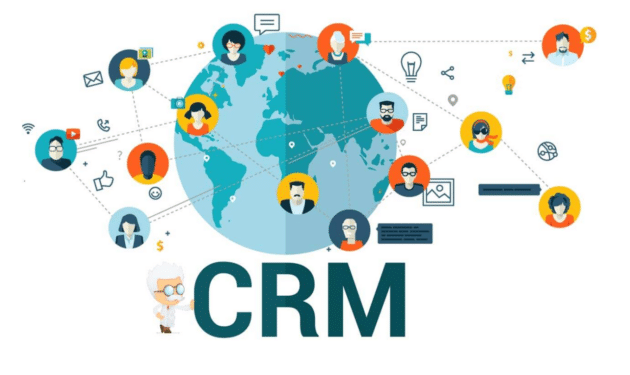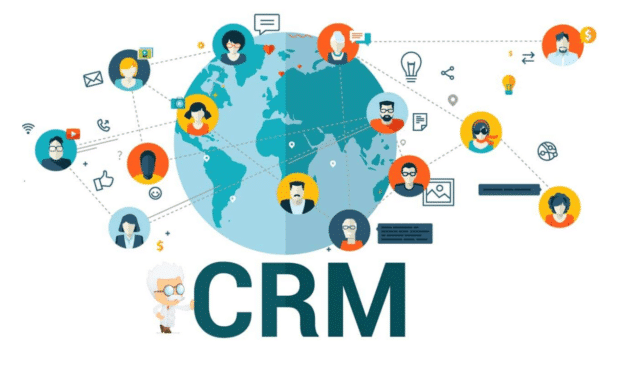CRM System: Transforming Customer Relationship Management for Businesses – A CRM system, or Customer Relationship Management system, is essential for modern businesses aiming to build and maintain strong relationships with their customers. In today’s competitive environment, companies need to adopt technology that streamlines customer interactions, manages data, and ultimately drives growth. This article explores what a CRM system is, the benefits it brings to businesses, its key features, and how to choose the right CRM system for your company.

What is a CRM System?
A CRM system is a software platform that helps businesses manage interactions with customers, prospects, and leads. It serves as a centralized hub for collecting, organizing, and analyzing customer data, allowing companies to gain a comprehensive view of their customer base. This technology supports a variety of functions, including sales, marketing, customer service, and support.
The goal of a CRM system is to enhance the efficiency of customer relationship management, streamline workflows, and improve customer satisfaction. By providing insights into customer behavior and preferences, a CRM system empowers businesses to make data-driven decisions and optimize customer engagement strategies.
The Benefits of a CRM System
Implementing a CRM system offers numerous advantages that can transform how a business operates. Here are some key benefits:
Improved Customer Relationships
A CRM system enables businesses to keep track of customer interactions, preferences, and purchase history. By having a complete view of each customer, companies can personalize their communication, anticipate needs, and offer relevant solutions. This leads to stronger customer relationships and higher levels of satisfaction.
Increased Sales
CRM systems help sales teams manage leads and follow-up activities more effectively. With tools for tracking prospects throughout the sales pipeline, sales representatives can prioritize high-value opportunities, identify potential deals, and close sales faster. Additionally, automation features in CRM systems can streamline routine tasks, such as sending follow-up emails or scheduling appointments.
Enhanced Marketing Campaigns
A CRM system provides valuable insights into customer behavior, preferences, and engagement. Marketers can use this information to segment customers, tailor marketing messages, and create targeted campaigns. By delivering more relevant content, businesses can improve the effectiveness of their marketing efforts and achieve better conversion rates.
Streamlined Customer Service
Managing customer service becomes much more efficient with a CRM system. It enables customer service representatives to access customer information quickly, track support tickets, and resolve issues faster. The system can also provide a history of previous interactions, ensuring a consistent and personalized service experience for each customer.
Data Centralization and Collaboration
With all customer-related information stored in one place, a CRM system makes data accessible to different teams across the organization. This centralization improves collaboration among departments, such as sales, marketing, and support, as they can easily share information and coordinate efforts to deliver a cohesive customer experience.
Analytics and Reporting
CRM systems often include robust analytics and reporting features that allow businesses to monitor performance metrics, track sales trends, and evaluate the success of marketing campaigns. This data-driven approach helps in making informed business decisions and identifying areas for improvement.
Automation of Routine Tasks
Automating repetitive tasks, such as data entry, follow-up emails, and scheduling meetings, frees up time for employees to focus on more strategic activities. Automation within a CRM system ensures that tasks are completed on time, reducing the likelihood of errors and improving overall productivity.
Key Features of a CRM System
A well-rounded CRM system offers a variety of features that cater to the different aspects of customer relationship management. Some of the most important features to look for in a CRM system include:
Contact Management
Contact management is a fundamental feature of any CRM system. It allows businesses to store and organize information about customers, leads, and prospects in a centralized database. This feature makes it easy to track customer interactions, segment contacts, and identify valuable relationships.
Sales Pipeline Management
CRM systems help sales teams visualize and manage their sales pipelines. By tracking deals at various stages, sales representatives can prioritize tasks, identify potential roadblocks, and take the necessary steps to move prospects through the pipeline. This feature is crucial for maintaining an organized and effective sales process.
Lead Management
Lead management tools within a CRM system enable businesses to capture, track, and nurture leads. Automation can be used to assign leads to sales representatives, set up follow-up reminders, and send out targeted marketing messages. By managing leads more effectively, companies can convert more prospects into customers.
Marketing Automation
Many CRM systems come with built-in marketing automation features, such as email marketing, social media integration, and campaign tracking. These tools allow businesses to create, execute, and measure marketing campaigns from within the CRM platform. Marketing automation helps companies deliver personalized content to customers at the right time, increasing engagement and conversion rates.
Customer Service and Support
CRM systems are often equipped with customer service and support features, such as ticketing systems, chat integrations, and knowledge bases. These tools help customer service teams resolve issues quickly and efficiently, while also providing a history of previous interactions for context.
Mobile Access
As businesses increasingly adopt remote work and mobile strategies, having a CRM system with mobile access is crucial. Mobile CRM apps allow sales, marketing, and support teams to access customer information and update records from anywhere, improving responsiveness and productivity.
Reporting and Analytics
Comprehensive reporting and analytics capabilities are essential for tracking business performance. A CRM system should offer customizable reports, real-time dashboards, and data visualization tools to help businesses understand key metrics, such as sales growth, customer satisfaction, and marketing ROI.
Integration with Other Tools
A CRM system should integrate with other business tools, such as email platforms, e-commerce solutions, accounting software, and project management tools. Integrations allow for the seamless flow of data across different applications, ensuring that all teams have access to up-to-date information.
Choosing the Right CRM System for Your Business
Selecting the right CRM system is a crucial decision that can significantly impact your business’s success. Here are some factors to consider when choosing a CRM system:
Identify Your Business Needs
Start by outlining the specific needs of your business. Are you looking to improve sales management, enhance customer service, or streamline marketing efforts? Understanding your primary goals will help you identify the features that are most important for your CRM system.
Consider Your Budget
CRM systems come in a wide range of prices, from free versions for small businesses to enterprise-level solutions that require significant investment. Establishing a budget will narrow down your options and help you find a solution that offers the best value for your money.
Ease of Use
The success of a CRM system often depends on how easily it can be adopted by your team. Choose a system with a user-friendly interface and simple navigation to encourage employee use. Some CRM vendors offer free trials or demos, allowing you to test the software before making a decision.
Customization and Scalability
As your business grows, your CRM needs may change. Choose a system that can be customized to meet your specific requirements and scaled to accommodate additional users or features in the future.
Integration Capabilities
Ensure that the CRM system can integrate with the tools you are currently using, such as email marketing software, payment gateways, and project management platforms. Integration capabilities streamline workflows and prevent data silos.
Customer Support and Training
Look for CRM vendors that offer strong customer support and training resources. This is especially important if your team is new to CRM software or if the system you choose is complex. Access to support and training ensures that you can get the most out of the software.
Security
Data security is a top concern when dealing with customer information. Make sure that the CRM system has robust security features, such as data encryption, user access controls, and compliance with relevant regulations.
Conclusion
A CRM system is a vital tool for businesses looking to manage customer relationships effectively. It provides numerous benefits, including improved customer satisfaction, increased sales, enhanced marketing efforts, and streamlined customer service. By centralizing data and automating tasks, a CRM system allows teams to focus on building stronger relationships and achieving business growth.
When choosing a CRM system, consider factors such as your business needs, budget, ease of use, customization options, integration capabilities, and customer support. By carefully evaluating these factors, you can select a CRM system that meets your requirements and helps you achieve your customer relationship management goals.
Investing in the right CRM system can transform your business, making it more efficient, customer-focused, and ready to thrive in a competitive market. Take the time to explore different CRM options, conduct trials, and gather feedback from your team to ensure you choose the best solution for your company’s future success.

